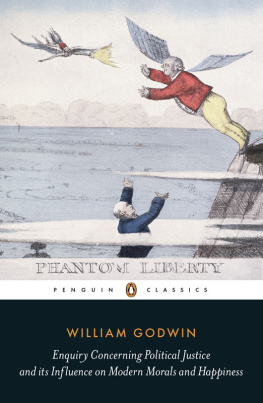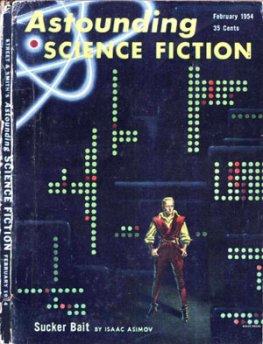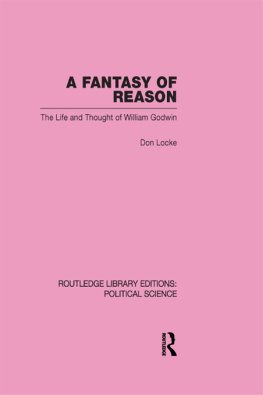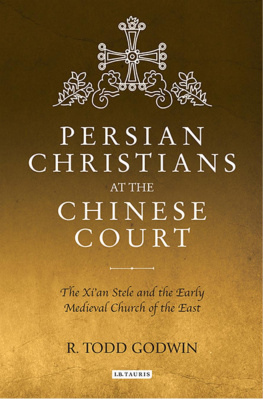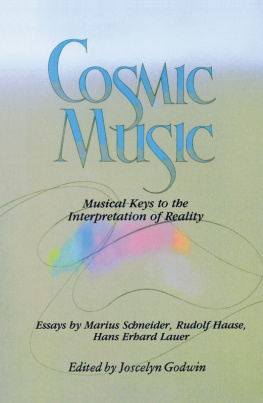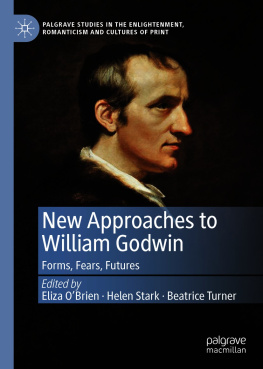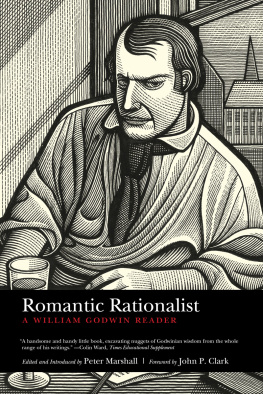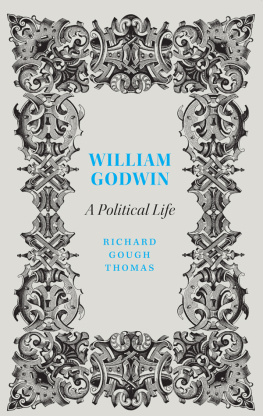Though he is somewhat little discussed today, William Godwin was and remains one of the most brilliant radical liberal writers of his age. He is considered by many the first modern anarchist, and his writings of all kinds earned him renown and great respect in his day. A true and shining example of Enlightenment-era skepticism, Godwin devoted much of his career to dispelling ignorance, myths, half-truths, and lies of all sorts. His 1834 Lives of the Necromancers (or, An Account of the Most Eminent Persons in Successive Ages Who Have Claimed for Themselves or to Whom Has Been Imputed by Others the Exercise of Magical Powers) is an especially important foray into philosophy, cosmology, and psychology. Throughout the volume, Godwin investigates examples of supernatural beliefs throughout world history. His purpose was to exhibit a fair delineation of the credulity of the human mind: an intellectual inoculation for his popular audience against poisonously bad ideas. Across the Atlantic, Edgar Allan Poe reviewed Lives of the Necromancers, remarking that Godwins writing exhibited an air of mature thoughtof deliberate premeditation pervading, in a remarkable degree, even his most common-place observations. In Godwins hands, the most banal cultural myths, legends, and institutions became outright lies and well orchestrated aristocratic deceptions. Poe commented that No English writerwith the single exception of Coleridge, has a fuller appreciation of the value of words. The American literatus continued: His compilation is an invaluable work, evincing much labor and research, and full of absorbing interest. The only drawback, Poe concluded with mournful respect, is found in the authors unwelcome announcement in the Preface, that for the present he winds up his literary labors with the production of this book. Godwins most insightful pen, he declared, should never for a moment be idle. It is in that spirit that we republish Godwins fascinating, challenging, and enlightening study of all things occult. To give readers both a pleasurable and insightful experience, this volume has been abridged and annotated. Readers who, like Poe, find themselves taken with Godwin are strongly encouraged to read the full volume, which is widely available for free on the Internet.
Preface
The main purpose of this book is to exhibit a fair delineation of the credulity of the human mind. Such an exhibition cannot fail to be productive of the most salutary lessons.
Nothing can be more striking than the contrast between man and the inferior animals. The latter live only for the day, and see for the most part only what is immediately before them. But man lives in the past and the future. He reasons upon and improves by the past; he records the acts of a long series of generations: and he looks into future time, lays down plans which he shall be months and years in bringing to maturity, and contrives machines and delineates systems of education and government, which may gradually add to the accommodations of all, and raise the species generally into a nobler and more honourable character than our ancestors were capable of sustaining.
Man looks through nature, and is able to reduce its parts into a great whole. He classes the beings which are found in it, both animate and inanimate, delineates and describes them, investigates their properties, and records their capacities, their good and evil qualities, their dangers and their uses.
Nor does he only see all that is; but he also images all that is not. He takes to pieces the substances that are, and combines their parts into new arrangements. He peoples all the elements from the world of his imagination. It is here that he is most extraordinary and wonderful. The record of what actually is, and has happened in the series of human events, is perhaps the smallest part of human history. If we would know man in all his subtleties, we must deviate into the world of miracles and sorcery. To know the things that are not, and cannot be, but have been imagined and believed, is the most curious chapter in the annals of man. To observe the actual results of these imaginary phenomena, and the crimes and cruelties they have caused us to commit, is one of the most instructive studies in which we can possibly be engaged. It is here that man is most astonishing, and that we contemplate with most admiration the discursive and unbounded nature of his faculties.
But, if a recollection of the examples of the credulity of the human mind may in one view supply nourishment to our pride, it still more obviously tends to teach us sobriety and humiliation. Man in his genuine and direct sphere is the disciple of reason; it is by this faculty that he draws inferences, exerts his prudence, and displays the ingenuity of machinery, and the subtlety of system both in natural and moral philosophy. Yet what so irrational as man? Not contented with making use of the powers we possess, for the purpose of conducing to our accommodation and well being, we with a daring spirit inquire into the invisible causes of what we see, and people all nature with Gods of every shape and size and angels, with principalities and powers, with beneficent beings who take charge concerning us lest at any time we dash our foot against a stone, and with devils who are perpetually on the watch to perplex us and do us injury. And, having familiarised our minds with the conceptions of these beings, we immediately aspire to hold communion with them. We represent to ourselves God, as walking in the garden with us in the cool of the day, and teach ourselves not to forget to entertain strangers, lest by so doing we should repel angels unawares.
No sooner are we, even in a slight degree, acquainted with the laws of nature, than we frame to ourselves the idea, by the aid of some invisible ally, of suspending their operation, of calling out meteors in the sky, of commanding storms and tempests, of arresting the motion of the heavenly bodies, of producing miraculous cures upon the bodies of our fellow-men, or afflicting them with disease and death, of calling up the deceased from the silence of the grave, and compelling them to disclose the secrets of the world unknown.
But, what is most deplorable, we are not contented to endeavour to secure the aid of God and good angels, but we also aspire to enter into alliance with devils, and beings destined for their rebellion to suffer eternally the pains of hell. As they are supposed to be of a character perverted and depraved, we of course apply to them principally for purposes of wantonness, or of malice and revenge. And, in the instances which have occurred only a few centuries back, the most common idea has been of a compact entered into by an unprincipled and impious human being with the sworn enemy of God and man, in the result of which the devil engages to serve the capricious will and perform the behests of his blasphemous votary for a certain number of years, while the deluded wretch in return engages to renounce his God and Saviour, and surrender himself body and soul to the pains of hell from the end of that term to all eternity. No sooner do we imagine human beings invested with these wonderful powers, and conceive them as called into action for the most malignant purposes, than we become the passive and terrified slaves of the creatures of our own imaginations, and fear to be assailed at every moment by beings to whose power we can set no limit, and whose modes of hostility no human sagacity can anticipate and provide against. But, what is still more extraordinary, the human creatures that pretend to these powers have often been found as completely the dupes of this supernatural machinery, as the most timid wretch that stands in terror at its expected operation; and no phenomenon has been more common than the confession of these allies of hell, that they have verily and indeed held commerce and formed plots and conspiracies with Satan.


